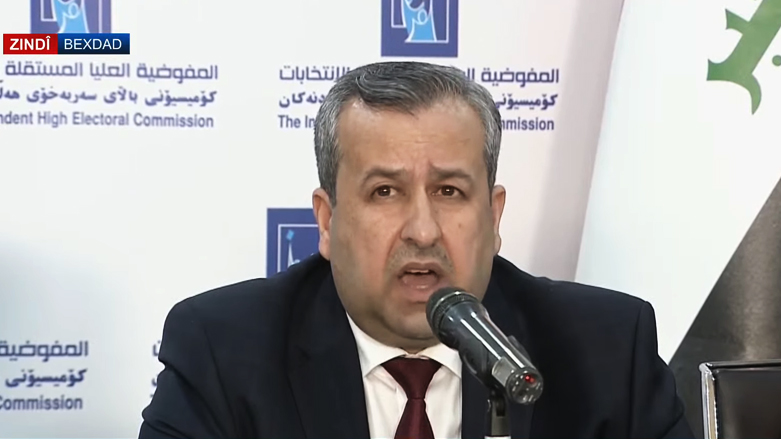Iraq’s electoral commission announces final results of October vote

ERBIL (Kurdistan 24) – Jalil Adnan Khalaf, the head of the Iraqi High Electoral Commission, announced on Tuesday the final results of the parliamentary elections held in early October which saw multiple unsubstantiated claims of voter fraud by parties or individuals that did poorly.
The final results showed that the bloc of influential cleric and Iraqi political kingmaker Muqtada al-Sadr topped the list with 73 seats, the Progress Party led by Iraqi Parliament Speaker Mohammed al-Halbousi came in second with 37 seats, and former Prime Minister Nouri al-Maliki's State of Law Coalition won 33 seats.
After that, the Kurdistan Democratic Party (KDP) won 31 seats, while both the Kurdistan Alliance and the Fateh Alliance, comprised of politicians affiliated to Iranian-backed Popular Mobilization Force (PMF) militias took 17 seats each.
Additional results are as follows: The Azm Alliance won 14 seats, nine seats went to the New Generation Movement, Khalafraqa Kanon secured six seats, the Tasmim Alliance got five, four seats each were taken by the National Contract Alliance, Babylon Movement, and the National State Forces Alliance, while the Hassim Movement for Reform and Our People’s Identity Alliance both got three and the United Iraqi Turkmen Front won a single seat.
These results do not substantially differ from those announced initially, with official winners changing in just five out of the total of 329 seats in the Iraqi Council of Representatives.
In the early days of November, violent clashes broke out as supporters of Iran-aligned militias of the Popular Mobilization Forces (PMF) attempted to storm Baghdad's heavily fortified Green Zone as part of protests following the loss of parliament seats by political parties affiliated to the armed groups.
Read More: Iraqi leaders call for restraint as post-election violence escalates
Losing candidates from several parties also lodged formal claims of electoral fraud, but the head of Iraq's Supreme Judicial Council later said that no clear proof of such allegations had been provided.
Read More: Iraqi judiciary says no proof of fraud in national election
One week ago on Nov. 23, the Special Representative for the United Nations Assistance Mission for Iraq (UNAMI) said on Tuesday that there has been no evidence of systematic fraud in last month's legislative elections, despite multiple claims to the contrary by losing candidates and parties.
Read More: UN envoy to Security Council: No evidence of fraud in Iraqi election
In her briefing to the UN Security Council in New York on developments following the elections, Jeanine Hennis-Plasschaert explained that the voting process was "assessed as generally peaceful, well run, featuring significant technical and procedural improvements."